UNODC press conference “Zero Tolerance for Wildlife Crime”
(VNF) - On June 1st a press conference at Green One UN House, Hanoi, was held with the theme “Zero Tolerance for Wildlife Crime”. The event was held by UNODC on the occasion of World Environment Day 2015 with the aim of indicating the tremendous impact of the crimes relating to wildlife species.

Participating in the press conference were Ms. Pratibha Mehta, UN Resident Coordinator; Mr. Christopher Batt, Officer-in-Charge of UNODC Vietnam Country Office; Lt General Tran Van Ve, Deputy Head of the General Police Department, MPS; Mr Nguyen Duy Giang, Head of Department for Prosecusion and Supervision over Criminal Cases, SPP; and Ms. Nguyen Thi Thu Hien, Vice Manager of Staff Division, Anti-Smuggling and Investigation Department, General Dept of Customs.
World Environment Day is celebrated on June 5th every year, and encourages countries across the world to raise awareness of specific environmental challenges. This year World Environment Day is putting the spotlight on the fight against illegal wildlife trade. UNODC organized the press conference to highlight some of the wider impacts of wildlife crime, particularly its corrosive effect on the rule of law and stability, as well as to promote some of Vietnam’s recent law enforcement efforts to address this issue. The press conference was conducted under UNODC’s Global Program for Combating Wildlife and Forest Crime. “The illegal trade in wildlife is driving species to the brink of extinction, while posing environmental, economic, development and security risks,” said Ms. Pratibha Mehta, UN Resident Coordinator. “This is a critical issue not only for Vietnam, but globally, and the United Nations in Vietnam stands firmly behind the appeal for zero tolerance for wildlife crime.”
Illegal wildlife poaching, trafficking, trade and consumption is an urgent and growing problem affecting a wide range of mammals, reptiles, birds, insects and amphibians, many of which are globally threatened species. It has become a multi-billion dollar business globally, with organized criminal activities driving many species to the brink of extinction, and causing unprecedented destruction of natural resources.
Vietnam has taken steps to reinforce its commitment to fighting wildlife crime, including a recent increase in reported seizures of illegal wildlife products. Between 2010 and 2015, Customs authorities seized approximately 55,200kg of pangolins, 18,000kg of ivory, and more than 235kg of rhino horn from illegal shipments; including one of their largest-ever seizures at Tien Sa Port in Da Nang last year, when three shipments containing more than three tons of ivory, 120 kg of rhino horn and four tons of pangolin scales, were intercepted.
 |
Last year the 13th National Assembly also adopted a new Penal Code with strengthened provisions and increased penalties for wildlife crime; and in November 2016 Vietnam will host the third international Conference on Illegal Wildlife Trade, which will be a critical event to galvanize the international community to take stronger action against wildlife crime.
However, UNODC noted that while Vietnam has enacted a range of efforts to improve legislation, strengthen law enforcement, and reduce consumer demand, there is still more that needs to be done. So far very few cases of wildlife crime have been successfully prosecuted in Vietnam’s courts, due to a range of challenges including inadequate preparation and presentation of evidence, legal loopholes, and a weak rule of law.
“Wildlife crime is serious transnational crime and it deserves a greater law enforcement response,” said Mr. ChrisBatt, UNODC Regional Advisor on Anti-Money Laundering and the Officer-In-Charge of UNODC in Vietnam, “The next generation of efforts in Vietnam would benefit from coordinated multi-agency investigations, the use of financial intelligence and anti-money laundering systems to map and disable trafficking networks, strengthening the capacity of law enforcement officials to address trafficking at borders and points of entry to Vietnam, and making full use of the newly increased penalties to deter wildlife crime.”
“To enhance the effectiveness of combating wildlife crime in the coming time, police forces are intensively and effectively implementing provisions of the Penal Code 2015 relating to wildlife crime; and closely coordinating with competent authorities namely Customs, Border Army, Market Control, Marine Police, and police from other countries and international organizations; enhancing exchange of information and experience in combating these types of crime,” said the Lieutenant General Tran Van Ve, Deputy Director of the General Police Department, MPS.
In his final call to action, Mr. Chris Batt urged everyone to help stop the growing wave of wildlife trafficking: “We all have a role to play, from lawmakers, police, customs officers, prosecutors and judges, businesses, and citizens. We need to raise awareness that wildlife crime is a crime that affects all of us, and one we should no longer accept. It’s time to get serious about wildlife crime – before it’s too late.”
Ha Thuong
Recommended
 National
National
Vietnam News Today (May 13): Vietnam Maintains High Human Development Index Despite Global Slowdown
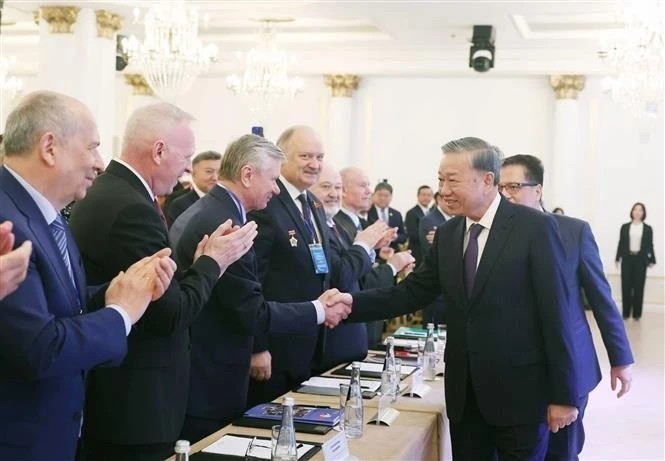 National
National
Vietnam News Today (May 12): Party General Secretary Meets With Russian Experts, Intellectuals
 National
National
Vietnam News Today (May 11): Vietnam, Austria to Boost Cooperation in High-Tech Development, Innovation
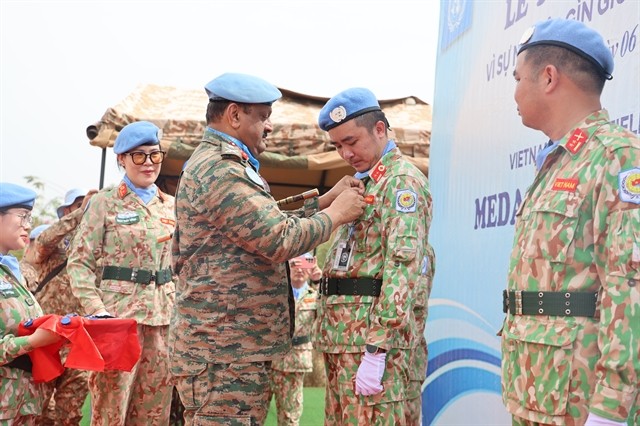 National
National
Vietnam News Today (May 10): Vietnamese Peacekeepers Honored with UN Medal in South Sudan
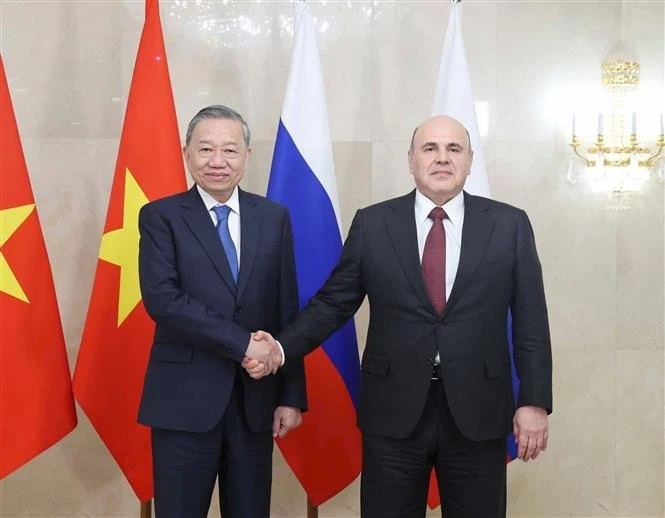 National
National
Vietnam News Today (May 9): Vietnam Ready to Work With Russia to Elevate Relations
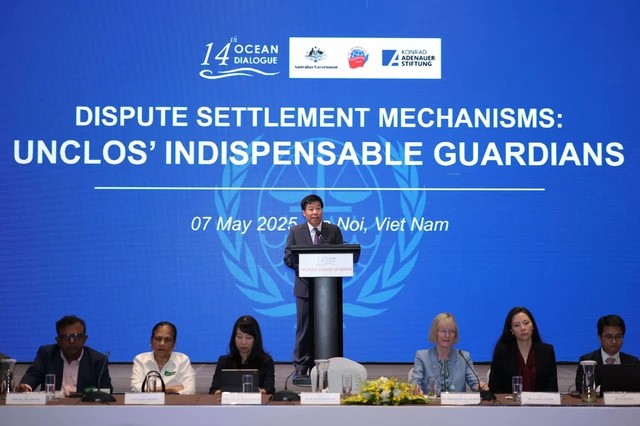 National
National
Vietnam News Today (May 8): Vietnam Remains Committed to UNCLOS
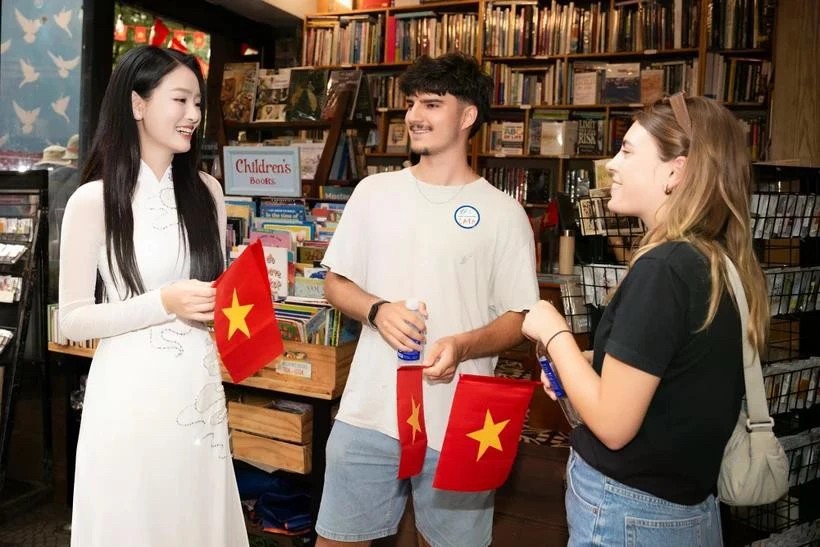 National
National
Vietnam News Today (May 7): Vietnam Hosts Over 7.67 Million International Visitors in First 4 Months
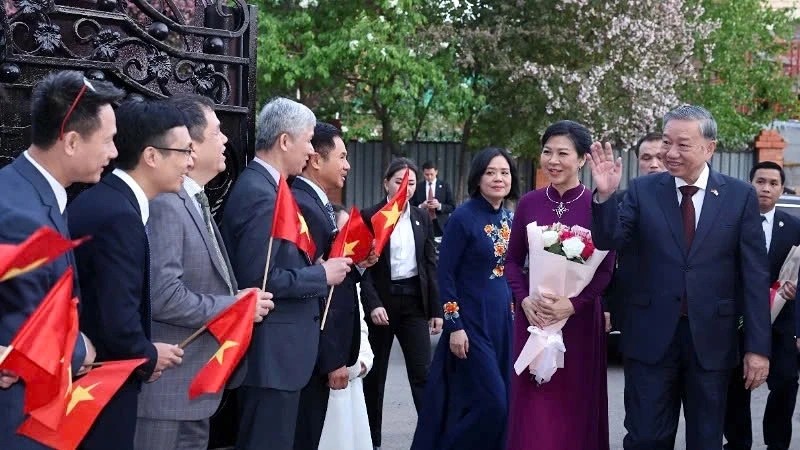 National
National
